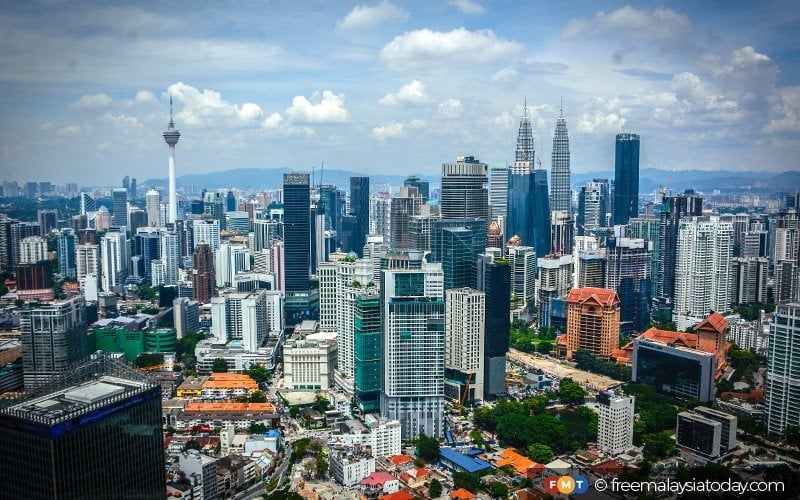
PETALING JAYA: An NGO has disagreed with an aide to Prime Minister Anwar Ibrahim for saying that Kuala Lumpur City Hall (DBKL) had effectively engaged communities when drafting the 2040 KL Structure Plan (KLSP2040) by conducting engagement sessions.
Last week, Anwar’s political secretary Azman Abidin defended DBKL from claims by Save Kuala Lumpur, an NGO that advocates greater environmental protection in the capital, that it did not properly engage with communities when drafting the KLSP2040.
The plan outlines the development of the city over the next 20 years.
Azman, who manages matters related to KLSP2040, said some objections were rejected after considering the importance of development in Kuala Lumpur and balancing this against the call for more recreational areas in the city.
In a statement, a separate NGO, the Kuala Lumpur Residents Action for Sustainable Development Association (KLRA+SD), today said it was not acceptable for Azman to say that “DBKL is following the rules” and “we cannot please everyone”.
It said of the 150 detailed recommendations it provided DBKL during and after the six public engagement sessions from May 18 to June 26, only two – or 1.3% of the recommendations – were adopted by DBKL. City authorities also did not provide any explanation as to why the other suggestions were not incorporated.
KLRA+SD said when public engagement sessions were conducted, it expected DBKL to be “sincere” and to “handle feedback professionally”.
It said KL residents deserve to be told why their feedback was not incorporated into the final plan.
“The public engagement exercise should not be viewed as just an attempt to please any party,” it said.
“It should be a two-way process. Concerned citizens should be given valid and cogent reasons why their suggestions were not incorporated into the plan.”
It said since Azman had said that some objections were rejected after considering the importance of development in Kuala Lumpur, it would be incumbent upon DBKL to inform KL residents what these “important developments” were.
“It is unacceptable for a democratic government to simply claim the importance of their so-called development plans without giving any facts to support that claim,” it said.
“Indeed, to say that they have considered the people’s feedback without proper evidence of that only amounts to lip service.”
KLRA+SD said that one of the most glaring examples of DBKL ignoring its feedback is how the gazetted plan sidesteps the recommendations by KLRA+SD regarding development on hill slopes where the land consists of Class III and Class IV slopes.
It noted that the previous KL Structure Plan (KLSP2020) specifically states that DBKL would not permit development on hillsides with slopes that exceeded the allowable level, rules and regulations set by the federal government.
KLRA+SD also said that the 2010 planning guidelines for hill slope and highland area development issued by the housing and local government ministry had “explicit restrictions” for Class III slopes and a complete prohibition of housing development on Class IV slopes.
“However, the criteria in schedule M6.8 of the gazetted KLSP2040 flouts both the KLSP2020 and the the ministry’s guidelines,” it claimed.
KLRA+SD added that in light of increasingly frequent landslides and flash floods, it had requested DBKL to include a requirement for environmental impact assessment (EIA) reports to be submitted for all proposed developments on all hill slopes and highland areas, regardless of land size, in line with the Environmental Quality Order (Prescribed Activities) (Environmental Impact Assessment) Order 2015.
“This demand was also ignored by DBKL,” it claimed.
“From the way the KLSP2040 was pushed through, it appears that the Madani government is not really committed to transparency and accountability.
“This is why citizens are increasingly demanding local government elections, especially for Kuala Lumpur, which is the most important city in our nation.” - FMT



No comments:
Post a Comment
Note: Only a member of this blog may post a comment.